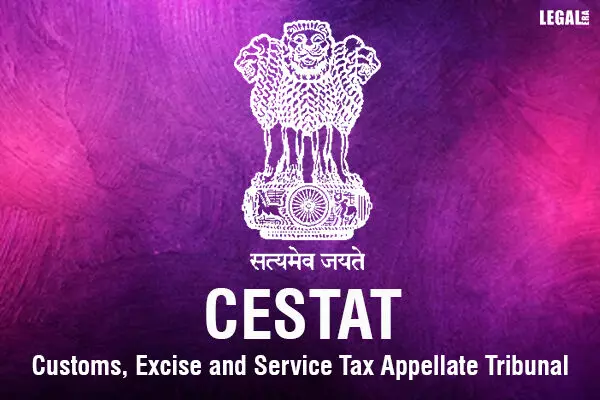- Home
- News
- Articles+
- Aerospace
- AI
- Agriculture
- Alternate Dispute Resolution
- Arbitration & Mediation
- Banking and Finance
- Bankruptcy
- Book Review
- Bribery & Corruption
- Commercial Litigation
- Competition Law
- Conference Reports
- Consumer Products
- Contract
- Corporate Governance
- Corporate Law
- Covid-19
- Cryptocurrency
- Cybersecurity
- Data Protection
- Defence
- Digital Economy
- E-commerce
- Employment Law
- Energy and Natural Resources
- Entertainment and Sports Law
- Environmental Law
- ESG
- FDI
- Food and Beverage
- Gaming
- Health Care
- IBC Diaries
- In Focus
- Inclusion & Diversity
- Insurance Law
- Intellectual Property
- International Law
- IP & Tech Era
- Know the Law
- Labour Laws
- Law & Policy and Regulation
- Litigation
- Litigation Funding
- Manufacturing
- Mergers & Acquisitions
- NFTs
- Privacy
- Private Equity
- Project Finance
- Real Estate
- Risk and Compliance
- Student Corner
- Take On Board
- Tax
- Technology Media and Telecom
- Tributes
- Viewpoint
- Zoom In
- Law Firms
- In-House
- Rankings
- E-Magazine
- Legal Era TV
- Events
- News
- Articles
- Aerospace
- AI
- Agriculture
- Alternate Dispute Resolution
- Arbitration & Mediation
- Banking and Finance
- Bankruptcy
- Book Review
- Bribery & Corruption
- Commercial Litigation
- Competition Law
- Conference Reports
- Consumer Products
- Contract
- Corporate Governance
- Corporate Law
- Covid-19
- Cryptocurrency
- Cybersecurity
- Data Protection
- Defence
- Digital Economy
- E-commerce
- Employment Law
- Energy and Natural Resources
- Entertainment and Sports Law
- Environmental Law
- ESG
- FDI
- Food and Beverage
- Gaming
- Health Care
- IBC Diaries
- In Focus
- Inclusion & Diversity
- Insurance Law
- Intellectual Property
- International Law
- IP & Tech Era
- Know the Law
- Labour Laws
- Law & Policy and Regulation
- Litigation
- Litigation Funding
- Manufacturing
- Mergers & Acquisitions
- NFTs
- Privacy
- Private Equity
- Project Finance
- Real Estate
- Risk and Compliance
- Student Corner
- Take On Board
- Tax
- Technology Media and Telecom
- Tributes
- Viewpoint
- Zoom In
- Law Firms
- In-House
- Rankings
- E-Magazine
- Legal Era TV
- Events
CESTAT: Rule 26(2) of Central Excise Rules Not Applicable Retroactively for Transactions occurring prior to April 1, 2007

CESTAT: Rule 26(2) of Central Excise Rules Not Applicable Retroactively for Transactions occurring prior to April 1, 2007
In a recent ruling, the Ahmedabad bench of the Customs, Excise, and Service Tax Appellate Tribunal (CESTAT) concluded that the penal provision, Rule 26(2) of the Central Excise Rules, 2002, cannot be retroactively applied to transactions that occurred before April 1, 2007. The ruling thus clarifies that the said penal provision does not have retrospective jurisdiction if it was conducted before the specified date.
The case revolved around the appellants, M/s. Goodluck Empire and M/s. Jenil Empire, who were accused of issuing Cenvat Credit invoices without actually supplying the goods to M/s. Nakoda Alloys Pvt. Ltd.
M/s. Nakoda Alloys Pvt. Ltd. played a pivotal role as the primary party in the case. It is noteworthy that M/s. Nakoda Alloys Pvt. Ltd. opted to settle their case under the Sabka Vishwas (Legacy Dispute Resolution) Scheme, 2019.
The single-member bench, presided by Ramesh Nair (Judicial), acknowledged that both appellants had provided self-incriminating statements, and the cross-examination failed to uncover any evidence contradicting their statements. This strong indication of their direct involvement pointed to their participation in the fraudulent act of passing Cenvat credit to M/s. Nakoda Alloys Pvt. Ltd.
However, the bench determined that Rule 26(2) of the Central Excise Rules, 2002 applied solely to transactions conducted after April 1, 2007. Consequently, the bench concluded that no penalty could be imposed under this rule for transactions that occurred prior to the specified date.
Consequently, the bench determined that in the case of M/s. Jenil Empire, where all transactions took place before April 1, 2007, no penalty could be imposed due to the retrospective limitation. However, in the case of M/s. Goodluck Empire, where certain transactions occurred after April 1, 2007, the penalty was reduced from ₹8,20,000 to ₹2,00,000.


